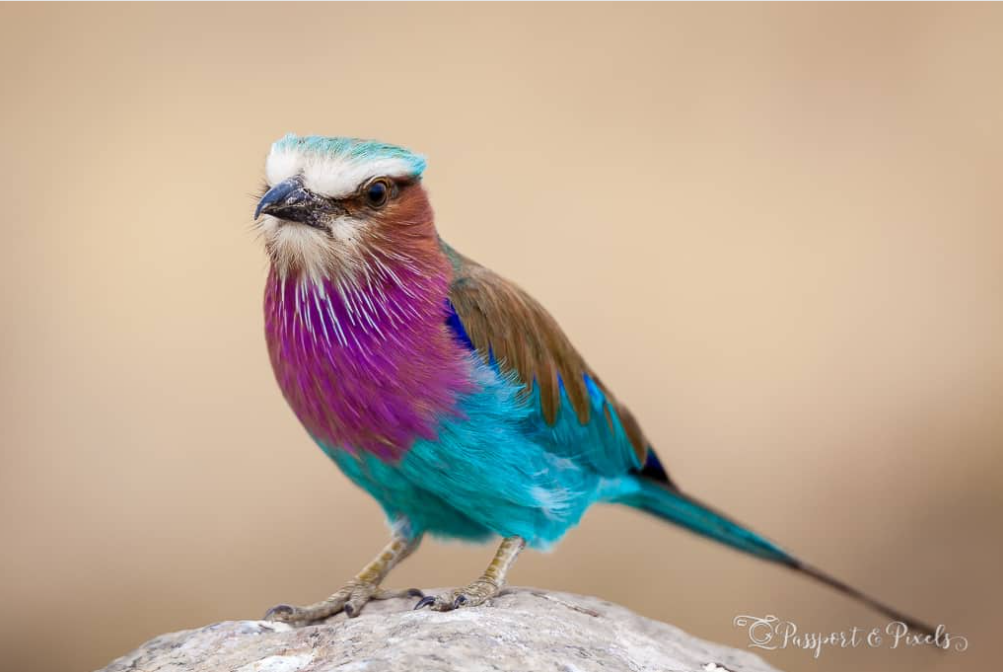A Song of Evening Flyers

A Story of Natural Heritage of New Forests of Dehradun Night stars wait for the sun to set, canvas of sky in a fuzzy expanse of atmospheric mist is painted red and somewhere orange. Search begins in the green pastures of few sacred groves with the help of some evening flyers and night venturers. Almost all the flying denizens of this classical woodland shall cherish the treasures of innocent wilderness, seeking to pursue a great sense of natural history, each singing his part of the song, in chronicled account of antiquity, the most precious gift of science, art and culture on the green turf of new forests of Dehradun...A K Singh
Wind makes music, early in the August afternoon, over the turf of forest research institute Dehradun, from the valley of Tons river, every gust of it, drenched in crystal clear water, rising from Himalayan foothills, as the white columns of walking officers punch the grounds slowly each day stitching their steps on the page of probation. Recurring rainwater is steered through beaks by some pigeons, where squawking ring plovers give a gentle push to help meander the stream to join into a river flanking northern side of the new forests. This river nourishes one and all with fresh water. Blue throated flycatcher leaves drunk water to the fortunes of most of the thrushes, sun birds and orioles in pursuit of his hunt for fresh thoughts in the routine life of the forest research campus. Most of the emerald doves, nuthatches and warblers had never acknowledged that mosaic of habitats varying from housing colonies, to natural forests, shall become the last resort, for all their new generations to come. But those who come here, leave with food for thought, with an idea to trigger the gusto of enthusiasm, with a nurtured view to implement at the remote and distant corners of the newly independent free country.
Work begins, at the break of the dusk, for flying beasts, for evening wanderers and for night creatures. Those who have arrived here with purpose, slip into their nightly brawl. They are supposed to bring light to the life of others. Murky image of the sun-set echoes in each eye of the Alexandrine parakeet, forming a corona-of-fiery orange radiance over multiple-layers of gloomy clouds progressing each moment, tumbling down to foggy horizon sluggishly. In such a salubrious ambience, can anyone think how a man can fail to brush aside his bias, here how deep he brooms his conceited pride, mops up his vanity of dreary thoughts and wipes off smugness of the routine affairs ? Squadron of happy children are seen to be playing in each street with some fun, pranks and preconceived notions. Some boys and girls busy in flippant evening games, take wild things for granted, posing question to each other whether a higher standard of living is worth its cost in things natural, wild and spontaneous ?
Few shouting parakets and tweaking orioles mostly dominate the setting, each day cracking down upon the spectrum of twilight, painted on the canvas of westward sky with a tinge of orange brush, in different lighter and darker shades, coated one above other, encircling the fiery red sun, stressing upon the fact that these natural things have no little value. Frogs of sideway ditches, showing no concern over the frolicking of the children of man, no curiosity over hyperactivity of strangers on most beaten paths and displaying no reprisal of his neighbors telling us that there are some who can live without things in wild, away from things in natural. Charisma of dipping sunny paintbrush in the evening everyday fascinates the inner disposition of one and all with gloomy color, for us in minority, to see a law of diminishing returns in progress.
Old classical woods of teak and pines have made their clusters of secret connections with night flyers, evening crawlers and cliff hangers in the new forests. Most of the older buttressed trees are found to flourish either in pine groves or in mango orchards, in the Terminalia bunches, in the row of Australian pines, on the passage of hefty trees of black berry, in a surreptitious correspondence with birds and daydreamers. Some of the woods of Lagerstroemia, cypress and eucalyptus are found in the ordered line of alignment on both the sides of the passageways reinforced from above the floor, giving an emphasis to the same notion that the new forest is a community of ecological and wild things. Things, which find meaning in our routine life, need to be loved and respected. Sunbird, despite her love of flowering buds, is obsessed in some respect to pre-fruiting blooms, insistently hovering around in search of her truth. She prefers floss silk, ficus, jamun, laburnum, neem and mango, spending her most of the time on them. The day of my visit, she restlessly springing from twigs to blooms of Brazilian floss, blossomed in pink, taught to me the sense of well being and the capacity to remain healthy. Sky, above the head, fills with swarms of dragon flies, soaring around like drones unremittingly and deeply probing sprouts of flowering grasses, and inspecting all the picks in tinge. In the backdrop of it, thousands of crickets and moles make sounds of chitter chatter constantly most of the time calling for rest from the darkness of lost days of forestry. Sun sets with the passage of each moment westward over the academic houses of few newly recruited barbets, emerald doves and some enthusiastic parakeets.
Air fills with buzzing of some bumble bees, spiraling over newly blossomed red inflamed pulcherima, few steps ahead a small cluster of honey bees drifting around sunflowers in their struggle to unearth some song of nectar, every time sticking to the tip of stigma, seeping the juice of life, in their duty to examine the architecture of each plant, animal and soil. Tawny coaster butterfly insists that certain squash be preconditioned before she ploys to drink the sap from fully flourished Vinca rosea before the end of this season. Glory of Amaranthus is not known to most of the flyers in the afternoon though few bunches of jetropha not seeded as yet remain lastly unnoticed to most of the day flyers. To most of them importance of life remains unknown unless they worship these things in wild for stealing few moments of their living. Some of them were oblivious of the fact that the splendor and importance of things in wild is recognized, only when they believed that the surface of the earth is elegantly clothed with dense woods, wild animals and free roaming lives. Pastures of forest research institute are laced green with number of new shoots of smut grass, with drop of honey dew at the tip of each leaf in some of the golden foxtail grasses, waiting to be either dried up or delaying a bit in order to droop down, and fresh sprouts of crab grass with her four bars of antennae standing to be tall in clusters before the front lines of academy telling that there is a way that nature speaks, that land speaks.
Most of the time we are simply not patient enough and quiet enough to pay attention to these wild stories. Some of the signal grasses keep water dews loaded on the flat leaves, wedged along their midribs, perceiving that the, sap of exuberance, from above the sky, shall irrigate the feelings and opinions of most of the lemon pansy, blue tigers and mormon butterflies in their schooling for a while. Meadows of cynodons, paddocks of Imperata and open green grounds of goose grasses in the surroundings are fortified with luster of refreshing puspalum grass blooming radiance, where common salor, common jay, bush brown and great eggfly butterflies are optimistic of their impression of great song of earth of the vivacity of living excitement, cheerfulness of the freedom to roam around and joyfulness of wandering in sovereign liberty in the country of their own, after a long stint of servitude and bondage.
Most of the orioles, doves, rose finches, and white wagtails make a virtue of necessity, presenting their part of mango groves to the evening flyers like hawk eagles, woodpeckers, kites, cuckoo and starlings chanting their part of the poems, in each ear of the mortals, in new forests, as the sun sets in the backdrop of the pavilions of stadium, where rose ringed parakeets screaming loudly with joy, eat and drink their part of the flesh of all the fruits, juices and sap of their chapters of learning. Some of the common mynas seal the line of all the balustrades of elevated cantilever erected on the edifice of roman pillars with their slogan to chant in chorus unleashing a rule of instructions to all the schooling cuckoos and lorikeets, as to resist all the injustice, unfairness and inequity in the administration of the life in woods, jungles and for all the things in wild.
This is strange for any flycatcher, for prinia, for grey horns, tree pies and for bulbuls to be mindful that arboretum is a distinct grove apart. Why do they survey and inspect it out in preference to other orchards in new forests ? Why else do they not intimate their siblings that nuthatch, pitta, some shrikes, blue magpies, monarch, rock thrushes, tree swifts, green pigeons, leaf birds, white belly drongos, and some owlets, have almost deserted them, who once upon a time, used to perform their part of humor, unknowingly for seed dispersal, in almost all the spring seasons ?
The birds acquire better conscience and recognition of their vital living ambience. Unaware of the fact as to why regiments of buzzards, kestrels and some eagles have overlooked landing over lofty forked canopies in geological past, some of the falcons who set their wings, descending in majestic spirals, seeking to alight on their twig-folded-nestlings have fallen to the vestiges of bygone age. Forked canopies, aged in time have, of late, assumed the silhouette of heavier woods of ficus, neem, and mango, now seeking to shelter the other immigrant birds too, each admitting, in her own custom, her reprieve, from the march of the time. Each accepting in her own fashion, caring for her own part of the woods, feeding to each of the flock of their children with milk, rooted in values and beliefs that have shaped the soul of their country, giving birth to the ethics that are banks of a river of purity, virtue and innocence. These beliefs that guide the course of spilling waters from heart of this country, the relief we find in sacred groves of Sarna, the respite we search in the pious natural woods of Gumpa, seeking to explore the liberation, in the pristine beauty of Than, or Kavus, in pursuit of the universal truth in the virgin untouched forests of Kovalkadu, searching for tranquility in the picturesque splendors of Law Lyngdoh, in the relentless discovery of succor in the woodlands of Jahera and Orans.
One thing, most of us in minority, leave unnoticed, is the glory of green pastures, the quality of splendid grasslands and the majestic grandeur of sacred groves here. A strange panorama of distinctive, shades of grey, of rising clouds, in the backdrop of evening twilight, shall coat in each eye of screaming parakeet, shall etch in the subconscience of each creaking file of barbets with warbling cooh coos. Drenched in mist, wetted in drizzle, each road, perching on a geometric design, seeking to negotiate its purpose, in the final destination of classical Roman superstructure, amid misty ambience of cool breeze, towards the horizon of both east and west, tries to hide in the veil of different shades of clouds, merging with a crowned canopy of heavily buttressed woods as if painted with shades of wavy contours. Here we in minority, with a dream to design our part of the nestlings, can persuade the majority of other birds, to perch upon the basic foundation of the nature, can influence other flyers or day dreamers to let them join us in our battle to refine the earth afresh.
Crave to behold sacred groves in high esteem by sages, saint and fakirs appears to have doomed to oblivion, when millions of songs of spirituality were crafted under the deep and darker woods of Indian soil, thousands of hymns were chanted with the help of natural instinct, designed in the woods, for well being of all trained flyers, plethora of verses were sung by hundreds of kings and emperors, praying for good health, hygiene and for lifting the men’s souls to the higher echelons of spiritual essence.
Anguished from apathy of Mughals and Britishers, long prayer of few owls, at long last fructified in 1876, when next morning babblers of new forests started singing chorus of changed British policy from laissez-fair tone to the tune of scientific control. It was this campus where seeds of new forests were sown, seeking to pledge, to admire effeminate essence of the mother earth, promise to hold it in high esteem for ever. Neither any Egyptian vulture nor any hawk eagle had any reason to believe that the fate of the new forests shall change for good and for that matter, to the better fortunes of Indian forestry for the generations to come.
Acknowledgment: Thankful to Government of India, Ministry of Environment, Forest and Climate Change Indira Gandhi National Forest Academy giving an opportunity to visit FRI Dehradun and also to Sh Manoj Chandran IFS Uttarakhand for sharing his thoughts on grasses of the Academy Campus.
A K Singh is the member of Indian Forest Service in the Government of Karnataka. Contact: [email protected] +919481180956 Date: 04.09.2015
114 Views










